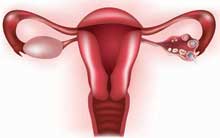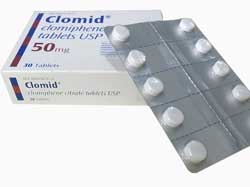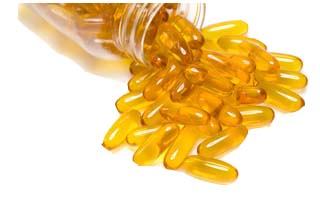Troubled by Infertility Caused by PCOS? Clomiphene Citrate (Clomid) as an Infertility Treatment: What You Need to Know
Have you received a diagnosis of PCOS? Perhaps you were finally diagnosed after finding you were unable to conceive? If so, you aren’t alone! About 5 – 10% of women develop PCOS, and it is the leading cause of infertility in women in the United States today (Stoppler; Kovacs, 2006). If you are presently facing infertility due to PCOS, then you may already know how difficult the challenge of overcoming your condition can be.
Perhaps you were finally diagnosed after finding you were unable to conceive? If so, you aren’t alone! About 5 – 10% of women develop PCOS, and it is the leading cause of infertility in women in the United States today (Stoppler; Kovacs, 2006). If you are presently facing infertility due to PCOS, then you may already know how difficult the challenge of overcoming your condition can be.
Your doctor may suggest treatment with the drug Clomiphene Citrate to restore ovulation and give you a greater chance of achieving pregnancy. How does Clomiphene Citrate work? Is it the right treatment for you? In order to make a wise choice between treatments, it is important to understand how each one works, compare it to alternatives, and choose what’s best for your unique profile of PCOS symptoms.
The tabs above contain more in-depth information regarding Clomiphene Citrate as a treatment for infertility related to PCOS. But we know how busy you are! What you need to know is that PCOS -related infertility is caused by an imbalance of sex hormones in your body. The same hormonal imbalance is responsible for the menstrual irregularities that often precede infertility problems. In both cases, the high male hormone levels interfere with ovulation, or the release of an egg. Without an egg being released, normal menstruation and/or pregnancy cannot occur.
Clomiphene Citrate is a pharmaceutical drug prescribed by doctors to stimulate ovulation. Clomiphene Citrate also commonly known as Clomid or Serophene. The chance for ovulation for women with PCOS much improved – about three fourths of women that have PCOS will ovulate with Clomiphene Citrate. Nevertheless, only about 50% of women that ovulate with Clomiphene Citrate therapy will actually get pregnant. This means only 38% of women taking Clomiphene Citrate will actually achieve pregnancy (Sherbahn).
Given that the odds of success are less than 50-50, it is especially important to consider the side effects of Clomiphene Citrate, and to consider other alternatives. No matter what you decide regarding Clomiphene Citrate, adopting a healthy lifestyle that includes a nutritious diet, regular exercise, and dietary supplements gives you the best chance at a successful pregnancy and overall good health.
Want to learn more about the five elements of natural PCOS treatment?
Causes
Infertility is simply heart-breaking. Desiring a child, but being unable to conceive, is especially painful for women who’ve always dreamed of being a mother. PCOS is the most common cause of female infertility, but how exactly does PCOS lead to infertility?
Desiring a child, but being unable to conceive, is especially painful for women who’ve always dreamed of being a mother. PCOS is the most common cause of female infertility, but how exactly does PCOS lead to infertility?
Many women who end up battling infertility previously experienced menstrual problems; sometimes these problems exist for years and can even begin in adolescence. If you have a history of menstrual problems, you should know that your chances for infertility are increased. Menstrual disorders are precipitated by unusually high levels of male hormones, known as androgens (Stoppler; WebMD, 2011).
Normal menstrual cycles begin with ovulation, or the release of an egg. Ovulation triggers your body to produce the correct hormones to prepare the uterus for a possible pregnancy. These hormones regulate the rest of the menstrual cycle, culminating with a menstrual period if pregnancy does not occur. Then the cycle should repeat the next month.
Women with PCOS often do no menstruate normally. In PCOS, the ovaries do not release an egg. Instead, it forms a small cyst on the ovary. These cysts become more numerous over time. When ovulation does not occur, the rest of the menstrual cycle is thrown into disarray. You may still menstruate, or spot, a condition is known as anovulatory bleeding. This type of menstrual cycle can be very heavy or very light, and can cause great discomfort. Or, you may not menstruate at all, or you may have an irregular menstrual pattern.
All of these menstrual issues in PCOS are caused by an imbalance in sex hormones. Women naturally have both female and male sex hormones in their bodies. It is the precise balance among these hormones that establish normal menstruation. Women with PCOS experience unusually high levels of male sex hormones, known as androgens. These high levels of androgens cause menstrual irregularities as well as infertility problems so common among sufferers of PCOS (Stoppler).
If you have PCOS, there is a good chance that your mother or sister or daughter will also suffer from the same condition. We now know that this disorder runs in families (Stoppler; WebMD, 2011). The role that genes and gene mutations may play is widely debated, and is being studied by scientists. Dysfunction of the body’s blood sugar control system is very often seen in women with this disorder (Stoppler; WebMD, 2011). Many believe insulin resistance and elevated blood sugar levels are the root cause of PCOS and its hormonal imbalances. Production of male hormones, androgens, is also connected with increased levels of insulin (Kovacs, 2006).
Want to learn more about hormonal imbalance and PCOS?
Symptoms
 The primary symptom of PCOS treated by Clomiphene Citrate is infertility. Infertility is often preceded by menstrual difficulties. Menstrual symptoms may include absent periods, irregularly-spaced periods, very light or very heavy menstrual flows, excessive pain or nausea accompanying menstruation.
The primary symptom of PCOS treated by Clomiphene Citrate is infertility. Infertility is often preceded by menstrual difficulties. Menstrual symptoms may include absent periods, irregularly-spaced periods, very light or very heavy menstrual flows, excessive pain or nausea accompanying menstruation.
Want to learn more about PCOS and Infertility?
Treatment Options
 Have you discovered you are infertile and are wondering if there is any hope you can become pregnant? If you have PCOS, your infertility may be due to anovulation, or a failure to release an egg from the ovary. What is the best treatment for a woman with PCOS who needs to regulate her ovulation in order to become pregnant?
Have you discovered you are infertile and are wondering if there is any hope you can become pregnant? If you have PCOS, your infertility may be due to anovulation, or a failure to release an egg from the ovary. What is the best treatment for a woman with PCOS who needs to regulate her ovulation in order to become pregnant?
One option for a woman with PCOS -related infertility is a medication called Clomiphene Citrate, also commonly known as Clomid or Serophene. It is an oral medication that has been used widely for treatment of ovulation problems. This drug is usually given when a woman cannot develop and release an egg (ovulation) and, thus, cannot get pregnant on her own (WebMD, 2011).
The chance for improved ovulation for women with PCOS is very good with this type of treatment – about three fourths of women that have PCOS will ovulate with Clomiphene Citrate. Nevertheless, only about 50% of women that ovulate with Clomiphene Citrate therapy will a ctually get pregnant. This means only 38% of women taking Clomiphene Citrate will achieve pregnancy. The chances for ovulation, pregnancy, and birth of a child are somewhat better in younger women with PCOS, however (Sherbahn).
Complications
Clomiphene Citrate has been used for many years, safely and effectively in most cases. However, during treatment with Clomiphene Citrate, a potentially very serious complication can occur. It is called Ovarian Hyper-Stimulation Syndrome or OHSS. This includes ovarian enlargement, severe gastrointestinal symptoms, swelling, shortness of breath, etc. OHSS can be fatal – you should immediately seek medical care if notice any of these symptoms developing.
a potentially very serious complication can occur. It is called Ovarian Hyper-Stimulation Syndrome or OHSS. This includes ovarian enlargement, severe gastrointestinal symptoms, swelling, shortness of breath, etc. OHSS can be fatal – you should immediately seek medical care if notice any of these symptoms developing.
And there are other possible complications. Use of Clomiphene Citrate is also associated with increased risk of multiple births. This is probably due to the drug stimulating the release of multiple eggs, or causing fertilized eggs to divide. Carrying multiple fetuses can endanger the mother’s health, and can endanger the unborn children, as well. If you become pregnant using Clomiphene Citrate, be sure your doctor screens you for the possibility of multiple babies as soon as possible.
PCOS, in general, is associated with a variety of pregnancy-related complications beyond just infertility. You may be at risk of pregnancy problems due to your PCOS whether you use Clomiphene Citrate or not.
Want to learn more about pregnancy problems and PCOS?
Side Effects
Like almost every pharmaceutical drug, Clomiphene Citrate is known to cause an assortment of side effects. Most side effects are minor and uncomfortable. But others can be serious and painful. Contact your doctor right away if you feel you are experiencing any side effect, even a mild side effect, from any drug you’re taking. Your doctor can determine if you should cease taking the medication, or modify your dosage.
The most common side effects of Clomiphene Citrate are:

- Enlargement of the ovaries
- Flushing or reddening of the skin
- Abdominal pain
- Abdominal distention and bloating
- Nausea
- Breast tenderness
- Blurred vision
- Headache
- Abnormal uterine bleeding
Less common side effects of Clomiphene Citrate are:
- Increased appetite
- Constipation
- Dermatitis, skin rashes
- Depression or anxiety
- Dizziness or vertigo
- Fatigue (Davis)
Want to learn more about natural PCOS treatment options?
Supplementation Options
If you are wary of taking prescription medications, or just prefer to try a natural treatment approach first, there are a variety of supplementation options available to women with PCOS. Herbal remedies have been used for centuries both for their effectiveness and for their track record of safety. Herbs that can be useful in the treatment of PCOS include:
Milk Thistle Extract (seed) – Supports liver function.
Vanadyl Sulfate – Restores blood glucose, lowers cholesterol, increases insulin sensitivity, improves glucose tolerance and metabolism, decreases body fat and reduces appetite naturally.
Chromium (Citrate) – Supports insulin binding to cells and decreases cholesterol and insulin levels. Boosts insulin response to glucose.
Alpha Lipoic Acid – Increases insulin sensitivity and lowers glucose levels. Provides antioxidant activity, scavenges free radicals, supports glucose transport and extends the functional capacity of Vitamin C, Vitamin E and CoQ10.
Magnesium (Citrate) – Positively affects insulin secretion/action and improves cholesterol profile. (Lower than normal levels of magnesium are associated with Insulin Resistance, glucose intolerance and hyperinsulinemia.)
Zinc Citrate – Lowers insulin concentration and improves insulin sensitivity.
L-Carnitine (Tartrate) – Improves insulin sensitivity.
Copper (Citrate) – Balances zinc and supports its ability to lower insulin concentration.
Calcium (Citrate) – Reduces fasting insulin levels, increases insulin sensitivity and regulates fat tissue.
Biotin – Involved in the manufacture and release of insulin; a cofactor required for the synthesis and oxidation of fatty acids.
Manganese (Citrate) – Reverses glucose intolerance, a deficiency associated with Diabetes.
Pancreatic Tissue (procine) – Contains specific amino acids in the correct proportions to supply growth, balance and repair factors of the pancreas.
Adrenal Tissue (bovine) – Contains specific amino acids to supply growth, balance and repair factors of the adrenals.
Vegetarian Enzyme Blend – Improve absorption and digestion of proteins and nutrients.
Vitamin C from Calcium Ascorbate – Prevent Vitamin C deficiency that induces disordered glucose regulation, improves glucose tolerance and scavenges free radicals. Reduces damage to arteries and arterioles and reduces glycosylation.
improves glucose tolerance and scavenges free radicals. Reduces damage to arteries and arterioles and reduces glycosylation.
CoQ10 (Ubiquinone) – Lowers glucose and insulin levels and plays a major role in carbohydrate metabolism. Aids peripheral glucose utilization while lowering fasting blood sugar.
Vitamin B12 (Cyanocobalamin) – Reduces neuropathy, sorbitol accumulation, muscle weakness and tingling.
Folic Acid – Ensures sufficient folate status to aid in the prevention of many chronic diseases (e.g. atherosclerosis, anemia, heart disease) and reverses homocysteine levels.
Quercetin – Antioxidant to inhibit free radical production. Reduces intracellular accumulation of sorbitol that is implicated in the pathogenesis of cataracts, retinopathies, neuropathies and other disorders.
Bilberry Extract – Improves microcirculation and protects the vessels of the eyes, in particular.
Grape Seed Extract – Reduces free radicals and supports healthy blood vessels. Lowers cholesterol levels and prevents damage to the artery from elevated glucose and insulin levels.
Thiamin – Thiamin (Vitamin B1) (as thiamin HCL) May help convert carbohydrates into energy. Thiamin is important for several body functions of the heart, muscles, and the nervous system.
Vitamin D – Vitamin D (as cholecalciferol) Vitamin D plays an important role in bone health, immunity and wound healing. Vitamin D may also affect insulin secretion and glucose tolerance.
Cinnamon Extract (CinSulin ®) – helps maintain healthy blood sugar levels.
Guar Gum – Helps maintain healthy cholesterol, triglycerides, systolic blood pressure and supports insulin sensitivity which regulates appetite.
systolic blood pressure and supports insulin sensitivity which regulates appetite.
Apple Pectin & Beet Powder – Slow the absorption of glucose into the blood stream, which reduces insulin response.
Fenugreek – Reduces the effect of carbohydrates following a meal, maintains healthy cholesterol levels and improves insulin response and glucose tolerance.
Milk Thistle – Helps maintain healthy blood sugar and insulin levels. Supports the liver.
Numerous studies have determined that lifestyle changes are the first line treatment for PCOS (Kovacs, 2006). Controlling weight through healthy diet and regular physical exercise can be more broadly effective than other treatment options, which often target just a few symptoms. Insulite Laboratories can assist you with dietary advice and exercise tips, as well as providing you the emotional support to be successful in beating your food cravings and making these lifestyle changes. This, along with Insulite Laboratories’ specially targeted natural herbal supplements for PCOS, can help you transform your health and reverse your PCOS. Visit Insulite Laboratories website to find the right PCOS treatment for you today!
END NOTES
Stoppler, M. C. Polycystic Ovary.
http://www.medicinenet.com/polycystic_ovary/article.htm
Sherbahn, R. PCOS and Clomid Fertility treatment.
http://www.advancedfertility.com/clomid/”>http://www.advancedfertility.com/clomid/PCOS-treatment.htm
Kovacs, P. (2006).Viewpoint: Lifestyle Modification is First-Line Treatment for PCOS
http://www.medscape.com/viewarticle/522390
Howard, A. (Oct 2009). Lifestyle Changes can Make Difference to Those with
Polycystic Ovaries (Opinion).
http://www.naturalnews.com/027263_sugar_blood.html
WebMD. (May 2011). Polycystic Ovary Syndrome (PCOS) – Topic Overview.
http://women.webmd.com/tc/polycystic-ovary-syndrome-PCOS-topic-overview
Davis, Charles Patrick.
http://www.rxlist.com/clomid-drug/side-effects-interactions.htm
Next Steps
- Take the PCOS Quiz! Get your score and assess your hormone health risks.
- Join our Facebook Sisterhood Group Pose your questions to this group of like-minded women. Get the answers to your questions and the support you need.
- Checkout the Hormone Reset. Guided Practices to eliminate anxiety, lose weight and boost energy.
We are committed to helping women reverse their symptoms of hormone imbalance – a major cause of excess weight gain, adult acne, unwanted facial hair, depression, anxiety, and heartbreaking female infertility.
©Insulite Health empowers women with hormone imbalance to transform their lives through a process of healing with the Natural Hormone Solution –a complete solution for helping women reverse the symptoms hormone imbalance..
